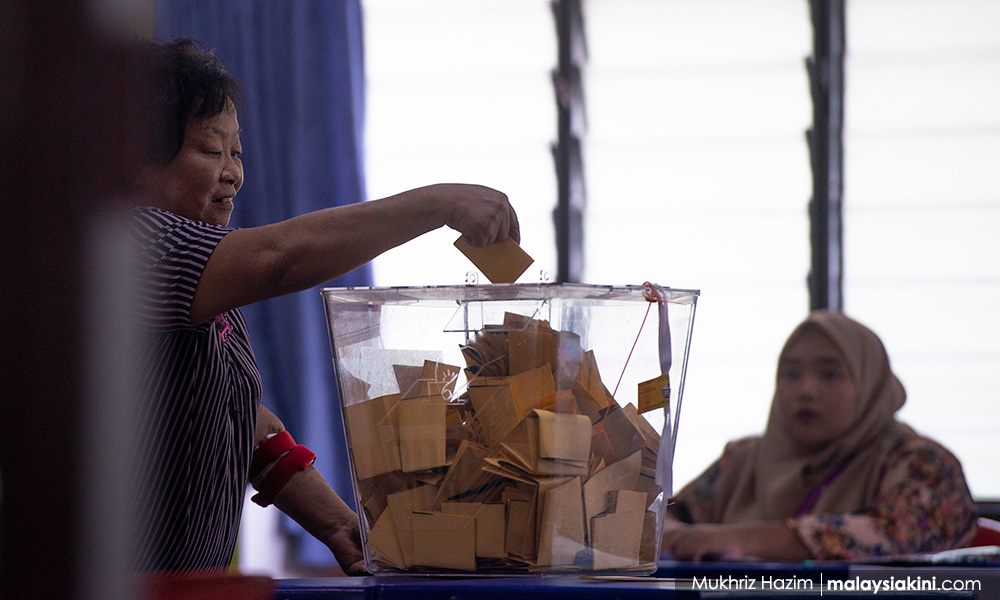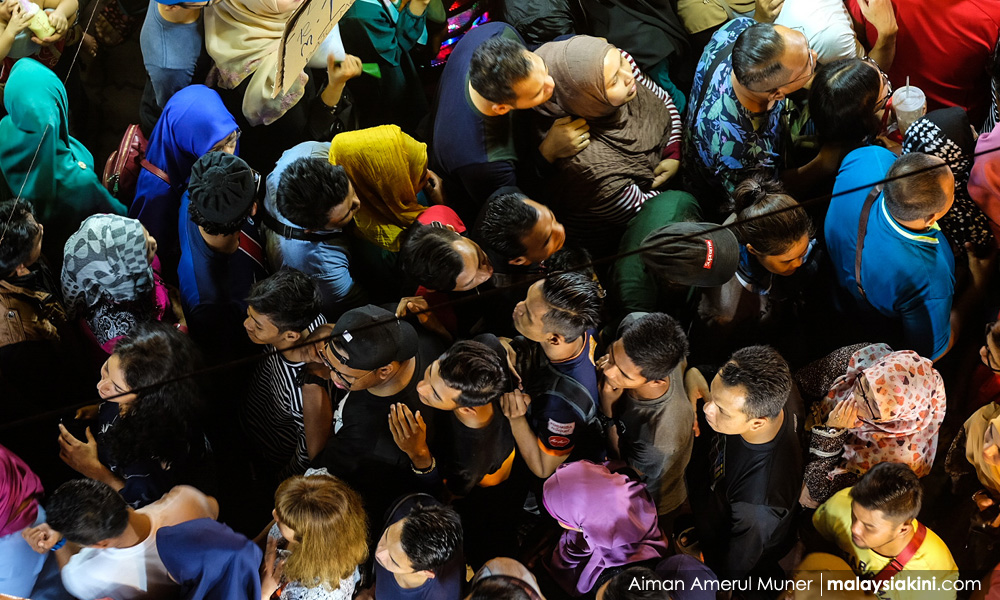The 15th general election (GE15) could happen as early as September. Prime Minister Ismail Sabri Yaakob’s administration’s memorandum of understanding with Pakatan Harapan includes a pledge to not dissolve Parliament until July 31, 2022.
Beyond that, Ismail Sabri is under no obligation to ‘delay’ GE15. In fact, the Umno vice-president is under pressure to hasten it.
The government pact revolves around Umno, solidly backed by its Chinese and Indian partners in BN and loosely strung with other Malay parties Bersatu and PAS, with dependable support of Gabungan Parti Sarawak (GPS). Race-based parties, which have ruled Malaysia for 63 out of 65 years, are enjoying a resurgence.
The opposition, particularly the Harapan coalition of mainly multi-racial parties, was trounced in recent state elections. Since losing federal power in February 2020, 21 months after their monumental May 2018 victory, Harapan has returned to a familiar position on the peninsula. It has traction with the urban or semi-urban electorate but has much less purchase in Malay-populated rural constituencies.
What will the government and opposition pitch to Malaysians? With recovery underway but pandemic pain lingering, ‘rice bowl’ pledges will take centre stage. Contenders will craft their plans for generating jobs, providing income, mitigating inflation, and delivering social services.
Opinion polls asking Malaysians to rank what matters most invariably find that ‘the economy’ or ‘cost of living’ far exceeds other concerns, such as ethnic relations or corruption.
The strategic and moral imperative is so compelling that all parties and coalitions - BN, Harapan, or Perikatan Nasional - will focus on jobs and benefits for all Malaysians in the battle for hearts and minds.
Less obvious outcome
Another outcome of this convergence, though, is less obvious: voters will compare variations on the same theme, and ultimately find marginal differences. This is especially true of Malaysia, where political rivals are remarkably aligned on economic policy. At the 2018 general election, BN and Harapan promised to raise the minimum monthly wage to the same level of RM1,500.

Harapan will try to persuade the electorate that its representatives are more diligent and sacrificial, and less corrupt and self-serving in bringing aid. They can point to track records in financial probity and in stewarding their constituencies through Covid-19 hardships and flood catastrophes.
They may have performed better than their adversaries, but again, all sides have something to offer on these matters – and, indeed, BN maintains an extensive and well-oiled grassroots machinery.
The general election in 2018 served up a unique scenario that will not repeat soon. At GE14, two flagships starkly differentiated the competitors. Harapan promised to abolish the Goods and Services Tax (GST) introduced by BN and to prosecute the 1MDB corruption scandal.
There is currently no pivotal economic cause like GST that only one side champions. Heading toward GE15, combating corruption and upholding institutions will still matter, but will have to contend against public fatigue and possible disillusionment that Harapan in government fell short in executing timely justice to advocate for institutional reforms, integrity and accountability will help Harapan retain its urban base, but it will scarcely win over pivotal rural constituencies.
BN’s formula
What policy stances might swing votes? One should re-examine BN’s formula of advocating race-based interests.
These policies grant preferences predominantly to Malays and bumiputeras - respectively, 56 percent and 70 percent of the population. The system has essentially stayed intact throughout changes of government but will be trumpeted loudly again by BN, its creator.
Besides the bumiputera quotas that will be effusively affirmed, BN will likely promise a quota for Indian students in pre-university matriculation colleges. Harapan, by all indications, seems inclined to revert back to its pre-2018 reticence on these fronts.
Two habits account for Harapan’s disengagement on pro-bumiputera policies, and indecision on group-targeted measures more broadly.
First, Harapan cleaves to a popular polemic that BN’s policies only help the ‘Malay elite’, fail to reach ordinary people, and perpetuate cronyism and corruption. There is truth to this assertion; certain policies - especially involving government contracts and wealth transfers - have been abused and gamed.
But tarring the entire system with the same brush distorts the entire picture. However uncomfortable it may be to admit, the reality is that low and middle-income households have benefited from a vast array of quotas or bumiputera-exclusive access to post-secondary institutions, technical colleges and universities, microfinance and SME loans, business support, public sector employment, government contracts, and unit trust funds.

A recent nationwide survey found that 81 percent of Malays support ‘Malay special privileges’. Such public sentiment means many things, but surely this includes an appreciation for the opportunities received through racial quotas or exclusive access.
The electoral implication is that, while Malays value general pledges on jobs and social services, they are very wary of parties that make no commitment to pro-Malay policies.
Second, Harapan mindfully upholds the noble principle of serving all Malaysians, but viscerally precludes Malay-targeted programmes despite their importance to the Malay community. The coalition has failed to present a clear narrative on how it will provide help for everyone while also implementing special policies for distinct racial, regional, or gender groups.
Harapan often comes across as supporting assistance targeted at Indian and Orang Asli communities while opposing the same type of interventions favouring Malays.
Interestingly, professing an all-Malaysian, inclusive platform has never stopped the opposition from advocating policies specifically for Sabah and Sarawak, rural areas, or women. These are grave inconsistencies that may cost the coalition come the next election.
Harapan actually wrote a new script at GE14, when its Buku Harapan manifesto was loaded with promises to promote bumiputera development, along with specific programmes for the Indian and Orang Asli communities, even the Chinese. That seems to be forgotten.
Unlike rice bowl issues in which voters appraise competing - and even similar - plans, on race-based policies the comparison between the plenty offered by BN versus the relative poverty of Harapan may prove to be the decisive difference. - Mkini
This article was first published on Fulcrum. Read the original article here.
LEE HWOK AUN is senior fellow at the Iseas-Yusof Ishak Institute.
The views expressed here are those of the author/contributor and do not necessarily represent the views of MMKtT.




No comments:
Post a Comment
Note: Only a member of this blog may post a comment.